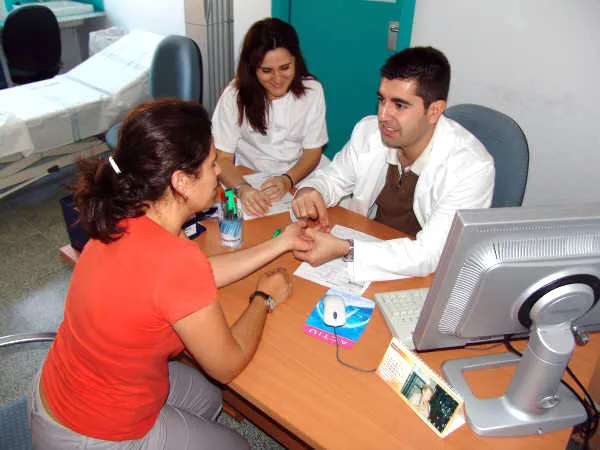The diabetes and nutrition areas and care for pluripatological chronic patients are the two areas in which the research developed by primary care professionals of Andalusian public health health professionals focused.These themes are followed as infectious diseases, respiratory diseases, intensive care, dementia, depression, cardiovascular diseases or alternative therapies, among others.
As reported by the Andalusian government in a note, 37 active research projects led by primary care professionals, care level in which scientific practice in recent years are increasing in recent years.In fact, and compared to 2015, active projects have increased by 37 percent.
In addition to research projects, other aid related to research is also active: three human resources (aimed at reinforcing scientific practice through human capital);one for the realization of complementary actions to the investigation;one for participation in the Network for the Research of Preventive Activities and Health Promotion (RESTIC);and a research award granted by the Maimonides Institute of Biomedical Research in Córdoba (Imibic).In total, in 2016, there are 43 research aid in process in the field of primary care compared to 31 of the previous year.
For the total of these aid, the budget available in 2016 has been around half a million euros (491,583 euros), the highest amount of recent years.
This increase in the number of research projects responds, among other reasons, that the Ministry of Health has first launched a specific call to finance research projects in primary care.Within her frame, which is permanent and is open all year, 15 research projects (5.5 percent of the total active projects have been financed) and the number is expected to increase once the year will endand the evaluations of the proposals submitted are terminated.
21 active projects in Malaga
The Sanitary District of Primary Care of Malaga is where the greatest activity is carried out, with a total of 20 active projects.In this Andalusian province, in addition, the project with the most budgetary endowment is developed, financed with 147,620 euros by the Carlos III Health Institute.It is a work that aims to prevent depression through a personalized intervention based on new technologies and predictive risk.
Also, at the Regional University Hospital of Malaga and in the La Lobilla Health Center, in Estepona, a European research project framed in the H2020 call is carried out.This work, in which other welfare and hospitals in Europe participate, aims to establish an intelligent support platform for the patient with Alzheimer's and their relatives, as well as the promotion of adherence to treatment and improves the quality of life.The system reminds patients taking their medications and offers an intuitive portal to improve the mental and physical relationship for their well -being at different times.
Support for primary care research
The call of the Exclusive Health Ministry for Primary Care professionals is a pioneer at the national level and is not the only measure that has been developing for the promotion of scientific practice at this level of care in Andalusia.
In this sense, in the last decade, the Ministry of Health has allocated around 3.3 million euros for the development of research and intensification projects of the research activity inThe Primary Care Clinical Management Units.Specifically, 104 research projects and 39 intensification aid for research activity for these units, participating more than 900 professionals.
The interest of primary care professionals in scientific practice is "revealed" by highlighting that more than 1,300 family doctors have participated, in the last six years, in the calls for projects of the Ministry of Health.In the same way, they have participated in eight research projects financed by the European Union in competitive calls for rare diseases, dietary and child nutrition, 'e-salud' and dementia, healthy life, diabetes and social interaction.
Finally, it should be noted that to date there are 19 industrial property records generated by primary care professionals.Among the applications is an invention of a team of nursing professionals that has developed a flow regulator to improve enteral nutrition by probe and solve accessibility problems when adjusting the desired flow of nutritional fluid.


